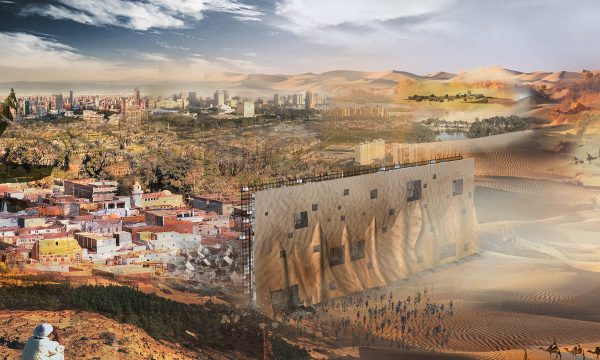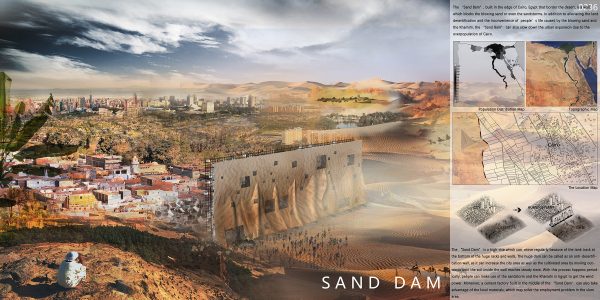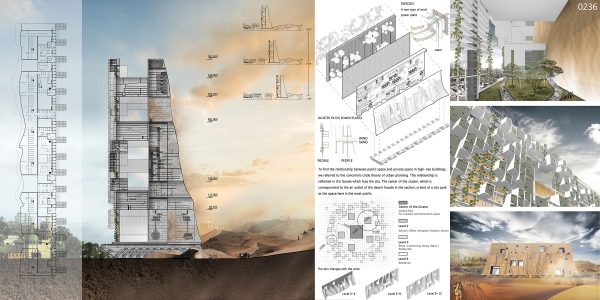Honorable Mention
2018 Skyscraper Competition
Jiangchen Hu, Yining Bei, Xiayu Zhao, Mingwen Zhang
China
The “Sand Dam”, built in the edge of Cairo, Egypt that border the desert, is a wall which blocks the blowing sand or even the sandstorms. In addition to alleviating the land desertification and the inconvenience of people’s life caused by the blowing sand and the Khamsīn, the “Sand Dam” can also slow down the urban expansion due to the overpopulation of Cairo. Khamsīn , more commonly known in Egypt as khamaseen, is a dry, hot, sandy local wind, blowing from the south, in North Africa and the Arabian Peninsula.
The“Sand Dam”is a high-rise which can move regularly because of the tank track at the bottom of the huge racks and walls. The huge dam can be called as an anti-desertification wall, as it can increase the city area as well as the cultivated area by moving outwards until the soil inside the wall reaches steady state. With this process happens periodically, people can make use of the sandstorm and the Khamsīn in Egypt to get the wind power. Moreover, a cement factory built in the middle of the “Sand Dam” can also take advantage of the local materials, which may solve the employment problem in the slum area.
To find the relationship between public space and private space in high-rise buildings, we referred to the concentric circle theory of urban planning. This relationship is reflected in the facade which face the city. The center of the cluster, which is corresponded to the air outlet of the desert facade in the section, is kind of a city park as the space here is the most public. The filter intercepts the sand in the wind as well as reduces the wind in order to maintain the thermal comfort.

















